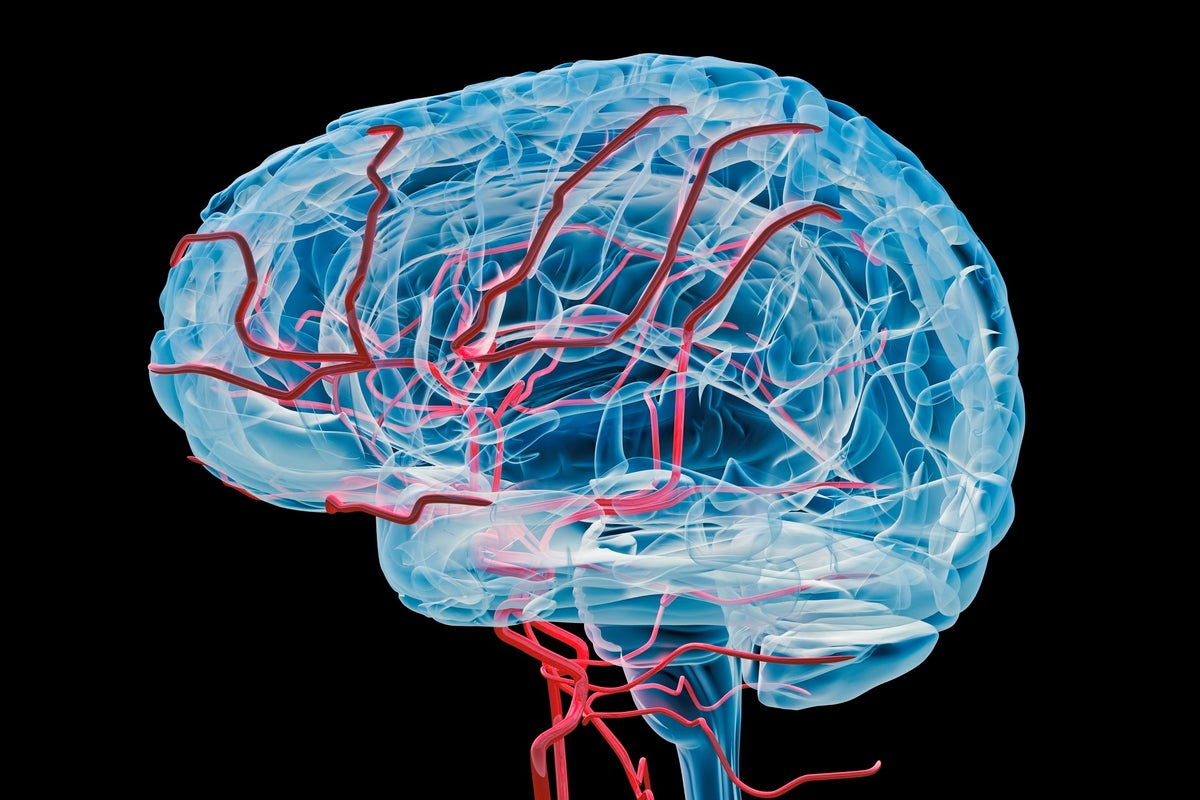Science
Researchers Discover Brain’s “Mileage Clock” Could Aid Alzheimer’s Diagnosis

Scientists have identified a “mileage clock” in the brain that may enhance diagnostic methods for Alzheimer’s disease. This discovery marks the first instance of such a mechanism being observed, providing insight into the brain’s navigation capabilities. The findings were published in the journal Current Biology and highlight the potential for improved understanding of cognitive functions related to distance estimation.
In the study, researchers at the University of St Andrews conducted experiments with rats, allowing them to navigate a small arena while recording brain activity in regions crucial for memory and spatial awareness. They identified specific cells, termed “grid cells,” which activated in a pattern reminiscent of a clock, reflecting the distance traveled by the animals. This discovery suggests that similar mechanisms could exist in humans.
To confirm this, human volunteers participated in a scaled-up version of the test. Results indicated that human brains also exhibit a form of this mileage clock. Lead author Professor James Ainge explained the significance of these findings, stating, “The specific brain cells we’re recording from are in one of the very first areas that’s affected in Alzheimer’s.” This connection provides a promising avenue for early diagnosis of the disease.
The research delves into how the brain constructs a “cognitive map” for navigation. It reveals that changes in the environment can disrupt this mapping, leading both rats and humans to misjudge distances. For instance, in low visibility conditions, such as fog or darkness, the natural ability to estimate distance can be impaired.
During the experiments, the researchers trained rats to cover a specific distance in a rectangular arena, rewarding them with treats for accurate navigation. The grid cells in the rats’ brains showed increased activity when they correctly estimated the distance. However, when the shape of the arena was altered, the firing patterns of these cells became irregular. This inconsistency led the rats to struggle with distance estimation, akin to how humans might misjudge distances in unfamiliar settings.
Professor Ainge elaborated on the implications of these findings, stating, “They seem to show this sort of chronic underestimation. There’s something about the fact that the signal isn’t regular that means they stop too soon.” This chronic underestimation can mirror challenges faced by individuals with Alzheimer’s as they navigate their environments.
In a parallel experiment, human participants navigated a 12m by 6m arena, mirroring the rat tests. Similar to the rodents, these volunteers also began to make errors in estimating distances when the walls of the arena were moved. This consistency across species underscores the fundamental nature of these cognitive processes.
Looking ahead, the research team envisions practical applications for their findings, particularly in the context of diagnosing Alzheimer’s. Professor Ainge noted, “People have already created [diagnostic] games that you can play on your phone, for example, to test navigation. We’d be really interested in trying something similar, but specifically looking at distance estimation.”
As understanding of the brain’s internal navigation system expands, these insights may lead to innovative approaches for identifying and addressing cognitive impairments associated with Alzheimer’s disease. The exploration of the brain’s mileage clock represents a significant step forward in both neuroscience and potential clinical applications.
-

 Health3 months ago
Health3 months agoNeurologist Warns Excessive Use of Supplements Can Harm Brain
-

 Health3 months ago
Health3 months agoFiona Phillips’ Husband Shares Heartfelt Update on Her Alzheimer’s Journey
-

 Science1 month ago
Science1 month agoBrian Cox Addresses Claims of Alien Probe in 3I/ATLAS Discovery
-

 Science1 month ago
Science1 month agoNASA Investigates Unusual Comet 3I/ATLAS; New Findings Emerge
-

 Science1 month ago
Science1 month agoScientists Examine 3I/ATLAS: Alien Artifact or Cosmic Oddity?
-

 Science1 month ago
Science1 month agoNASA Investigates Speedy Object 3I/ATLAS, Sparking Speculation
-

 Entertainment5 months ago
Entertainment5 months agoKerry Katona Discusses Future Baby Plans and Brian McFadden’s Wedding
-

 Entertainment4 months ago
Entertainment4 months agoEmmerdale Faces Tension as Dylan and April’s Lives Hang in the Balance
-

 World3 months ago
World3 months agoCole Palmer’s Cryptic Message to Kobbie Mainoo Following Loan Talks
-

 Science1 month ago
Science1 month agoNASA Scientists Explore Origins of 3I/ATLAS, a Fast-Moving Visitor
-

 Entertainment2 months ago
Entertainment2 months agoLewis Cope Addresses Accusations of Dance Training Advantage
-

 Entertainment3 months ago
Entertainment3 months agoMajor Cast Changes at Coronation Street: Exits and Returns in 2025









